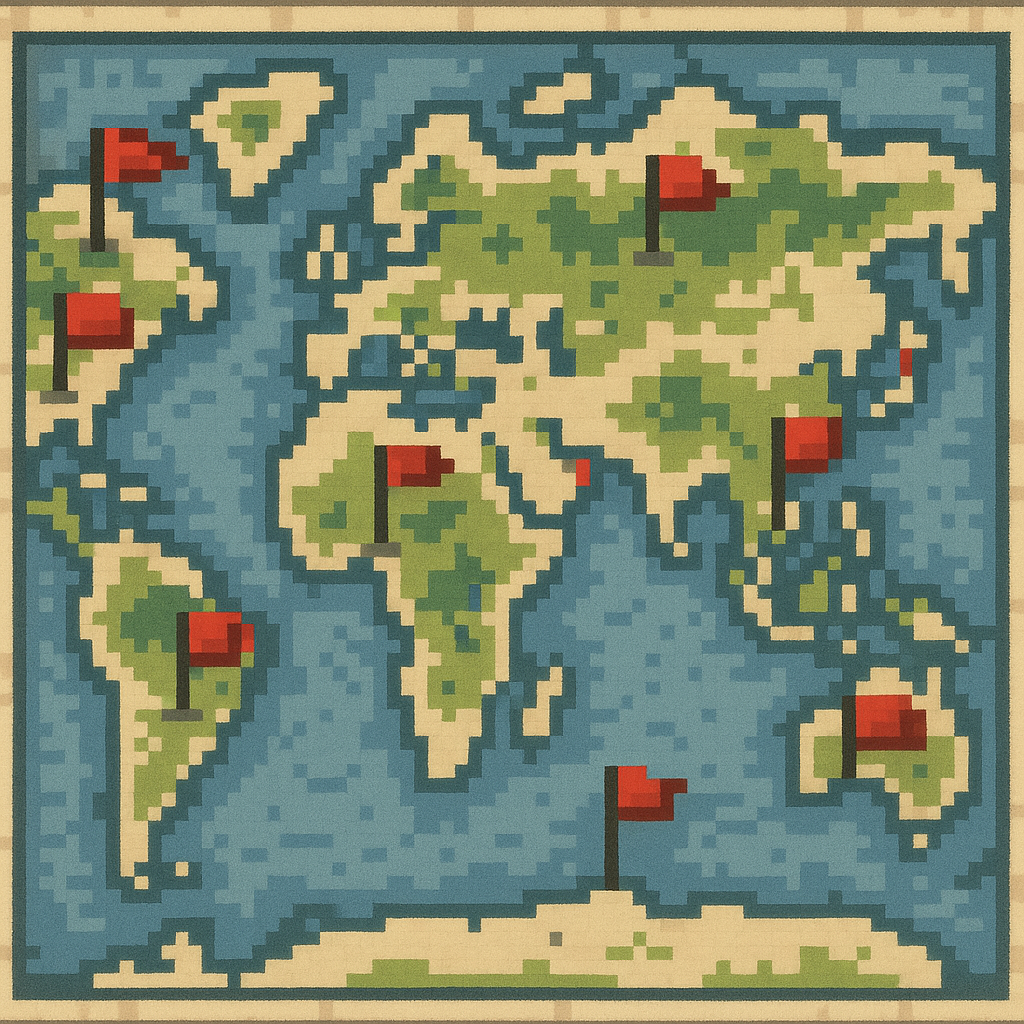The Case You Can’t Afford to Lose: Better IT Support for Law Firms
Running a law firm means every minute counts. Yet too many firms still fight with slow systems, misplaced documents, and downtime that chips away at...
4 min read
Dylan Borden
:
Nov 3, 2025 8:00:01 AM
At Four Winds IT, we make it a point to keep you updated on the best tools to make one part of your business easier, one step at a time. Whether it’s automating your scheduling, securing your data, or simplifying your accounting, we’re here to help you build systems that last and adapt.
In this post, we’re diving into the tech trends we’re seeing across Florida’s small business landscape, what’s working, what’s changing, and how you can think about IT tools in a way that actually makes sense for your business. And if you want a deeper dive into any of this, just give us a call. We’d be happy to help.
Besides being IT experts (duh, we’re your IT partner), we’ve got a knack for building systems that don’t just work, they evolve. And part of what allows us to do that is learning from how other businesses are running. The proof’s in the pudding.
Ready to see how your business stacks up? Let’s talk about the tools that make sense for your team and your goals.
Here’s what we’ve noticed: growing businesses in Florida are leaning into tech in smart, strategic ways. They’re not just buying software; they’re building workflows. They’re not just automating; they’re optimizing.
From law firms to construction companies, we’re seeing teams use Microsoft 365 to collaborate across locations, QuickBooks Online to simplify financial reporting, and AI tools to reduce repetitive tasks. These aren’t just trends—they’re shifts in how work gets done.
And let’s talk about QuickBooks for a second. We know your team probably has a death grip on the on-prem version. It’s familiar. It’s comfortable. You know exactly where everything lives and how to fix it when something goes sideways. But here’s the truth—QuickBooks Online is just the least problematic way to use the software today. It’s more secure, easier to access remotely, and built to grow with your business. No more server hiccups, messy backups, or version conflicts.
We’ve seen it happen again and again: within a year of switching, most teams forget their old setup even existed. The transition feels like a mountain at first, but once you’re over it, it’s nothing but clear skies. Cleaner data. Fewer headaches. And collaboration that actually feels effortless.
And yes, we’re seeing this in our own client base too. Businesses that once relied on paper trails and manual scheduling are now using integrated systems that save time, reduce errors, and make scaling possible.
If you’re not sure where to start, look for the friction points—the parts of the day that waste time or create stress for your team.
Here’s a simple way to break it down:
Repetitive tasks: Anything your team does more than twice a day is a candidate for automation. With Microsoft Copilot built into apps like Outlook, Word, and Excel, even everyday work like drafting emails, summarizing meetings, or formatting data can happen in seconds instead of hours.
Bottlenecks: If one person is the gatekeeper for a process, it’s time to decentralize with shared tools. Copilot agents can act as digital assistants that pull updates, send reminders, or find information automatically so your team doesn’t have to wait on one person to move a task forward.
Manual data entry: This is where mistakes happen. Copilot can pull information from different Microsoft tools and automatically fill in forms, reports, or spreadsheets. That means less copy-pasting and fewer late-night “Did I update the right version?” moments.
Communication delays: If your team is stuck in endless email threads, it’s time to move to real-time collaboration tools. Copilot inside Microsoft Teams can summarize long discussions, highlight next steps, and even create follow-up tasks so no one has to dig through chat history to remember what was decided.
The goal isn’t to replace people; it’s to give them better tools. AI may be a buzzword, but in practice, it’s becoming the easiest way to keep teams focused and efficient. When your staff spends less time on admin, they spend more time on strategy, service, and growth. And yes, that all adds up to saving money because time is still the most expensive resource you have.
We don’t just help you choose the right tools; we help you find ways to fund them.
Let’s be honest: grants can be tricky. They’re not always easy to find, and the application process can feel like a maze.
But they’re not impossible. And in Florida, there are opportunities to use funding for IT initiatives—especially when those initiatives support workforce development, cybersecurity, or operational efficiency.
Here’s how to start:
Know what qualifies: Many grants focus on training, innovation, or disaster recovery. If your IT upgrade helps you hire smarter, protect data, or improve service delivery, it may qualify.
Check local and state programs: While no grant is guaranteed, programs like Florida Jobs and Enterprise Florida offer funding and incentives that can support tech adoption.
Talk to your local SBDC: The Small Business Development Center (SBDC) can help you navigate eligibility and applications.
Document your impact: Grants often require proof of ROI. Track how your tech investment improves efficiency, reduces costs, or supports growth.
Ask us for help: We’ve worked with clients who’ve successfully used funding to support IT upgrades. We can help you identify what’s possible and what’s worth pursuing.
Technology isn’t just changing how we work; it’s changing what’s possible. And in Florida, where small businesses are scaling smarter, the opportunity to build something lasting is real.
So if you’re ready to stop chasing tasks and start building systems, we’re here to help.
Let’s make 2026 the year your tech stack works as hard as you do.
Running a law firm means every minute counts. Yet too many firms still fight with slow systems, misplaced documents, and downtime that chips away at...

Last week, we reminded you that Windows 10 will officially reach its end of life in 2025. That’s more than just a security issue — it’s the perfect...

In today’s digital-first world, cybersecurity isn’t just an IT checkbox—it’s a business necessity. Whether you’re a solopreneur or running a...